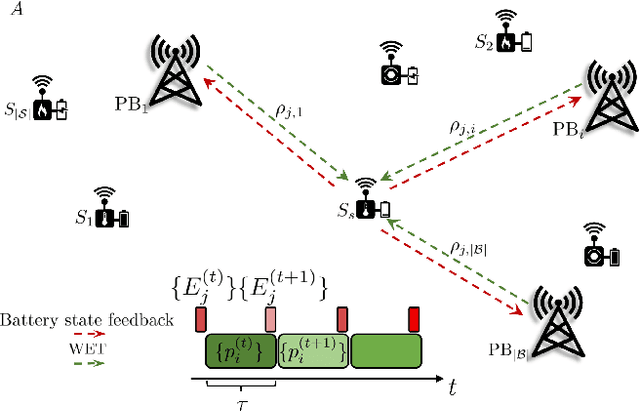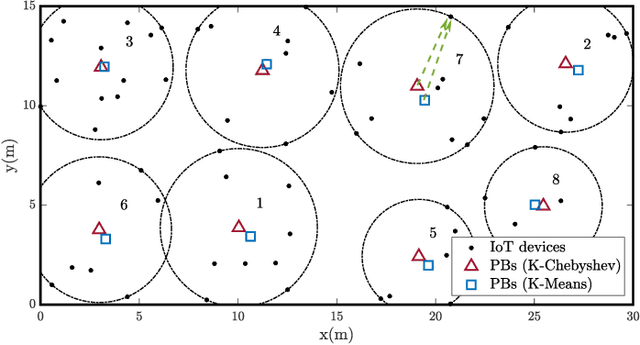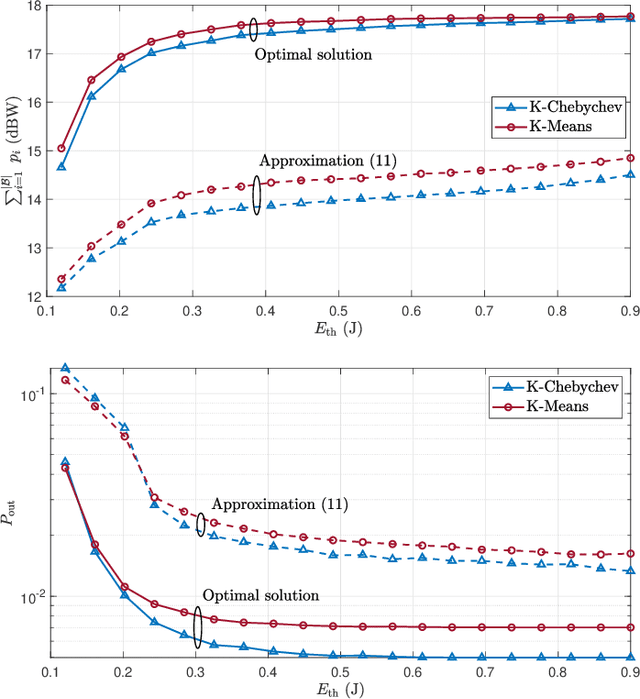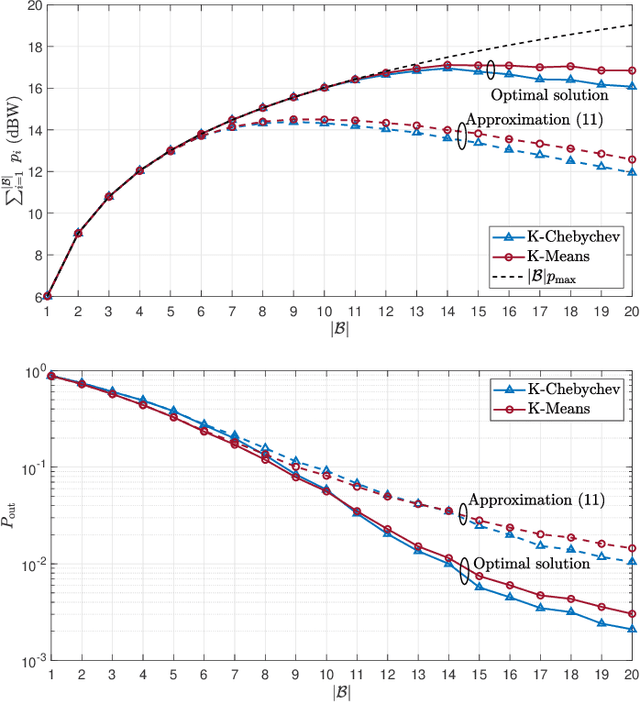Massive Wireless Energy Transfer with Multiple Power Beacons for very large Internet of Things
Paper and Code
Jun 24, 2021



The Internet of Things (IoT) comprises an increasing number of low-power and low-cost devices that autonomously interact with the surrounding environment. As a consequence of their popularity, future IoT deployments will be massive, which demands energy-efficient systems to extend their lifetime and improve the user experience. Radio frequency wireless energy transfer has the potential of powering massive IoT networks, thus eliminating the need for frequent battery replacement by using the so-called power beacons (PBs). In this paper, we provide a framework for minimizing the sum transmit power of the PBs using devices' positions information and their current battery state. Our strategy aims to reduce the PBs' power consumption and to mitigate the possible impact of the electromagnetic radiation on human health. We also present analytical insights for the case of very distant clusters and evaluate their applicability. Numerical results show that our proposed framework reduces the outage probability as the number of PBs and/or the energy demands increase.
 Add to Chrome
Add to Chrome Add to Firefox
Add to Firefox Add to Edge
Add to Edge